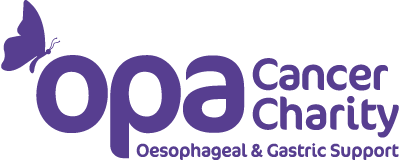Your Question
I am reading your site with great interest, but you are really scaring me, too. I have laryngopharyngeal reflux (LPR) on top of gastroesophageal reflux disease (GERD); I cannot tolerate proton pump inhibitors (PPIs), can barely tolerate histamine H2-receptor antagonists (H2 blockers), and neither is really controlling my condition. I recently had some more tests done (impedance manometry and 24 hr PH), and my doctor said he didn’t think I’d be a good candidate for surgery because I have “weird esophageal contractions” (I need to find out more about those). I really don’t know what to do at this point. Another doctor suggested yet another GERD specialist, but the part that bothers me most is the “LPR” part of it (as I’ve had to give up singing, temporarily) — which made me wonder whether to see a voice specialist? Or perhaps I need to see both specialists? Also, what’s with the contractions precluding surgery? I have been using PPIs on demand (as I can’t tolerate them daily, and don’t think they help the LPR part of it, anyway… in fact, they seem to make that worse!), H2 blockers daily, and also, some alternative treatments. Suggestions? Acid reflux cures? My doctor seems to be unwilling for me to have yet another endoscopy… he said I had one “last year”, but I don’t think I did. How often should I be getting them, anyway? Thanks!
RefluxMD Response
About your diagnosis
Thank you for sharing your history and your questions. Based upon your comments it appears that you have been diagnosed with GERD. We know that symptoms alone cannot make this diagnosis and therefore I presume that the pH study, which is the gold standard “definitive” test for GERD, was positive. The usual initial treatment for GERD is, as you described, acid-suppressing medications. PPIs have become the standard due to their effectiveness in suppressing stomach acid production. Some individuals cannot tolerate PPIs, usually getting one of the three common side effects: headaches, diarrhea, or abdominal pain. However, before committing to a lifetime of daily PPIs, it is important to know the medical risks associated with daily long-term use.
You stated that symptoms of “LPR on top of GERD” are present. We have no way of knowing your specifics, but the following statements are important. GERD can present with two different types of symptoms. Esophageal symptoms are most common which consist of heartburn, regurgitation, and mild swallowing trouble (dysphagia). Extraesophageal symptoms (often termed LPR and Silent Reflux) consist of those in the throat such as a chronic cough, hoarseness, constant throat clearing, worsening asthma, and indeed, voice and singing problems.
Patients with ONLY extraesophageal symptoms
A difficult situation presents when a patient has ONLY extraesophageal symptoms. This does not seem to be the case here. However, these symptoms have many potential causes. We have no confirmatory testing that tells us the symptoms are due to reflux, so therapy is difficult. These patients tend to do poorly whether treated with medications or surgery.
A device approved by the FDA may provide some relief to those with LPR. Since LPR is a result of a weak upper esophageal sphincter (UES), it stands to reason that any device that can assist in closing the UES will reduce or eliminate LPR symptoms. We encourage you to learn more in our article: Reflux Band: New hope for LPR sufferers, where we discuss LPR in more detail, along with all the treatment options.
Patients with BOTH esophageal and extraesophageal symptoms
If someone has regurgitation and/or heartburn with a positive pH study, we know reflux is present and the typical symptoms likely result from GERD. Treatment with acid suppression or surgery is very effective in most cases in controlling the typical symptoms, and may or may not resolve or improve the atypical ones.
When we talk about acid reflux cures, we always prefer a safe and natural approach to symptom reduction. This is a comprehensive approach and can provide additional health benefits as well. First, if it is important to maintain a BMI of 24. The results of weight loss have been nothing short of phenomenal for anyone suffering from GERD symptoms. Weight loss will reduce pressure on the diaphragm and the lower esophageal sphincter, resulting in symptom relief for many. Second, adopt a GERD-friendly diet that eliminates all trigger foods. We always recommend portion control by eating 5, and even 6, small meals daily. Third, you should adopt all the necessary lifestyle changes to reduce symptoms and disease progression. Finally, we encourage less powerful antireflux medications such as H2 blockers and antacids, which have a much better safety profile than PPIs.
Let’s take things one step further. Assuming, (based upon your comments) that you have both typical and atypical symptoms, a positive pH study, you cannot tolerate or have unsatisfactory relief with acid suppressive medications, and the safe and natural approach noted above does not provide satisfactory symptom relief, then you might consider both the Reflux Band and antireflux surgery.
Prior to any antireflux surgical procedure and in all patients who complain of dysphagia, a manometry (or impedance-manometry) study should be done. This is to exclude conditions of the esophagus that may mimic GERD and to determine if the esophagus functions in such a way that antireflux surgery is appropriate. Manometry is a highly specialized study requiring significant experience in its interpretation, as well as the best way to act on the results.
Effectiveness of antireflux surgery
The description of “weird esophageal contractions” is not helpful and a full and complete interpretation must be obtained. It should be said that if a primary esophageal disorder was discovered, I am sure you would have been informed and given the option of appropriate treatment. In other situations, it is very unusual for manometry results to exclude consideration for antireflux surgery. Therefore, we must clarify the probable positive pH study results, as well as figure out the full, complete and expert evaluation of the manometry study to move forward. If there is any question about whether the manometry results exclude you from surgery, it should be reviewed by an expert antireflux surgeon for him or her to determine definitively whether surgery will be effective. This is very important since an incorrectly interpreted manometry study can potentially deny antireflux surgery to a patient who needs it the most or a primary esophageal problem could be missed.
We do not have a good test for determining if atypical symptoms are caused by reflux, but here is what we know. For patients with both types of symptoms who do poorly or cannot tolerate PPIs, who have a positive pH study confirming GERD, and a manometry study that has no abnormalities severe enough to exclude surgery, education regarding options and expectations must be provided. Generally speaking, in this setting, antireflux surgery will deal with esophageal symptoms with great success. In good hands, the procedure will eliminate those symptoms in about 90% of cases. The extraesophageal symptoms statistically resolve or significantly improve in 60-70%. This accents the difficulty, even in the face of documented reflux, to correctly determine the cause of these symptoms.
Follow-up endoscopy (EDG)
This is a common question concerning the frequency of EDG exams. For those without Barrett’s esophagus, a repeat EDG in the 5 to 10-year time frame is appropriate, based upon individual risk factors. For anyone diagnosed with Barrett’s esophagus, the time frames are much shorter. In an article by Dr. Chandrasoma, he notes that the standard time frame is 1 to 5 years, but he also appreciates physicians that “think outside the box” and engage with the patient to set EDG testing dates.
One physician or a team?
In a situation like this, where several physicians have been involved and the problem has been difficult to solve, it is best to see one single physician that is an expert in all aspects of reflux disease, including surgery. Your symptoms and the results of previous studies will be carefully reviewed and appropriate options and education will be provided. At this point, it is best not to be caught in the middle of multiple specialists. The specifics of antireflux surgical procedures will not be discussed here, but it is essential to see a surgeon experienced in these procedures as well as understand the risks, success rates, and side effects before proceeding.
I hope this helps!
Please note: RefluxMD does not provide medical advice. This content is provided for informational purposes only and should not be used as a replacement for direct medical advice from your healthcare provider. See our Terms of Use for more detailed information.
This article is courtesy of Reflux MD – https://www.refluxmd.com/acid-reflux-cures/?utm_source=RefluxMD+MASTER&utm_campaign=177c333496-AUTOMATION_Masterlist_Automation_24&utm_medium=email&utm_term=0_589b0d1b5f-177c333496-79187922


